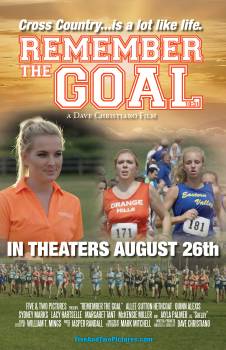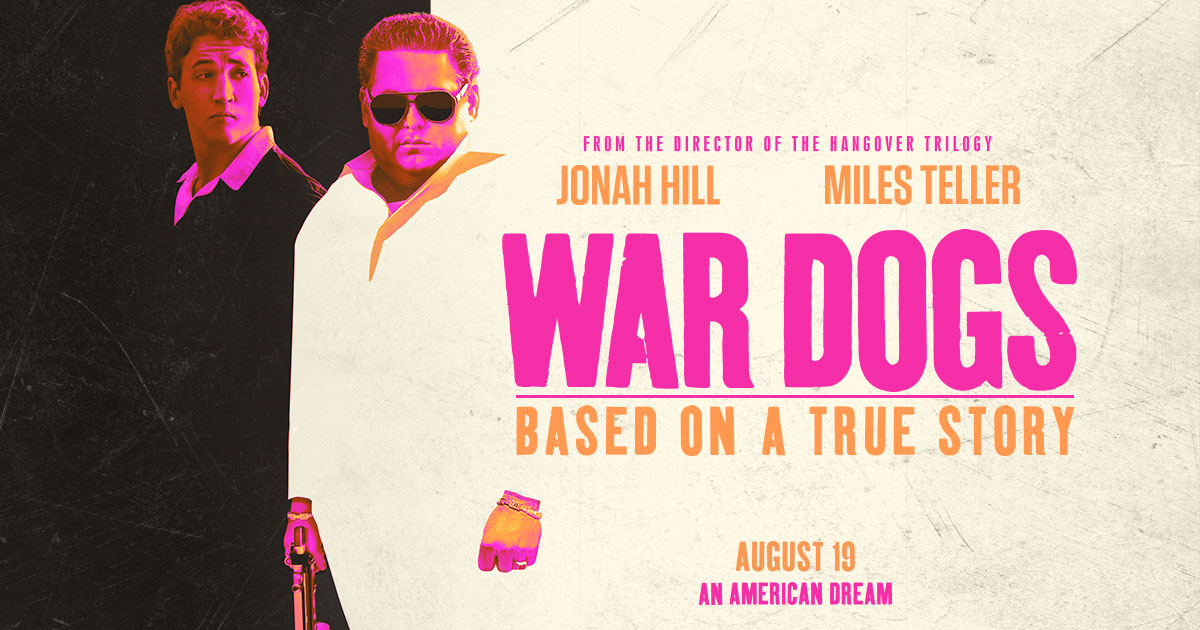Interview: Chad Hartigan on “Morris from America”
Posted on August 20, 2016 at 11:28 pm
Being 13 is agonizing because of the upheaval that makes you feel like an outsider from kids, from adults, and from yourself. In “Morris from America,” the title character is a 13-year-old who is an outsider. He and his father have just moved to Germany, where everything is different and he does not know anyone. He cannot speak the language, he is younger than the other kids, and he and his father are the only black people in the community, and, it seems, the entire country. Craig Robinson and Markees Christmas give outstanding performances as father and son. Writer/director Chad Hartigan has created a sensitive, funny, poignant film and it was a pleasure to talk to him.
I love that conversation between Morris and his father at the end of the film. Tell me a little bit where that came from.
It’s probably a little bit of a fantasy. I don’t have kids myself and so if I’m imagining what I might be like as a dad of course I’m going to come up with a sympathetic and wise version. I really like the idea of a dad who is really trying his best and a kid who is deep down a good kid. Two things that I think most people would find inherently undramatic but that I thought you could still have a dramatic relationship between them.
I understand that the movie is in some way sort of autobiographical, that you lived abroad when you were Morris’s age. Is that right?
Yes but that’s kind of actually maybe the least autobiographical thing about it. I did live in Cyprus until I was 12 or 13 and then we moved to the States. So it’s almost a reverse scenario. My mom is American and I have always had an American accent and I went to an international school in Cyprus so I was very well accepted there. In the States it took me a long time to make friends but no one ever thought or assumed I was a foreigner, so I kind of got away with it a little bit. The movie is autobiographical more in the sense of the specific things that happened to me during my painful adolescence and falling in love for the first time with a girl.
The bad hip hop in the film is what I wrote when I was young. I really wrote that when I was 12 and my teacher found it and gave it to my mom and I got in big trouble. When I was collecting anecdotes from my life I thought, “Oh, wouldn’t it have been funny if I got in trouble because these are so bad instead of what I actually got into trouble for, because of the content.” But when he raps well at the end that we had to outsource to someone who was better than me.
How do you find a person that age who is self-aware enough to be able to give such a sensitive portrayal?
It was extremely hard. It took months and a lot of looking and that’s also the quality that’s hard to kind of gauge. You can never really expect that one is going to come in and nail it from a technical acting standpoint so you have to be looking for other things and a lot of the times you are not even sure what those things are yourself. You are maybe just looking to be surprised in some way. Markees had a very stiff actual audition but he surprised me with the questions that he asked. I always asked the kids if there’s anything they wanted to know before we started, about if they thought of anything reading the scenes and he just asked the questions that in their simplicity made it seem like he was thinking about this in a much different way than all the other kids.
How do you make him comfortable with some of the sensitive and vulnerable scenes? He is so natural.
In January I did a call back with Markees and the call back was still a little bit stiff. I wasn’t totally sure if he was the one, to be honest, but we were going to shoot the movie in June and we had already spent so many months casting that I was faced with the decision of either keep waiting and hope that a kid walks in the door and blows my mind or cast someone now and use the time from January to June and work with him. And I decided to do that with Markees. I really just went to his house about once a week and not to rehearse or anything but just to hang out and for him to get a feel of who I was and build a relationship and to meet his friends. I think that in the end that was really was essential because on the set in a foreign place I was the one person that he was most familiar and most comfortable with.
It was a great pleasure to see Craig Robinson in a more serious role. He gives a beautiful performance.
He wasn’t the first person I saw in the role either, but sometimes the movie god is looking out for you and giving you what you don’t always know you need. We had another actor we were talking to and that broke down and then someone brought up Craig and I was like, “I love him but can he do this? Can he do the German, the monologue?” I wasn’t sure but I got to meet him and talk with him and I asked David Gordon Green who directed “Pineapple Express.” He spoke very highly of Craig. So that was another case where I was like, “Well he is willing to take a chance on me, I should be willing to take a chance on him.” We did and I’m very happy that we did.
What made you decide to set the film in Germany?
I knew I wanted to make a film in Europe just because I’m a dual citizen and feel like it’s a part of my identity that I want to take more advantage of. And then when I came up with the coming of age story I was like, “Well, since I lived there as a teen this one might make sense,” Germany was the most recent country I had visited so I started writing it for there. The more I put into it the more it the more it just felt like the right fit. They all speak English there. I tried to learn for the movie, I tried to really do a crash course and I did learn enough to get by ordering at restaurants, that kind of stuff but it was a fact that they all spoke enough English that’s that made it easy to work there.
There is a moment in your film when Inga has a difficult message to deliver about Morris and the father’s reaction to her is very surprising. Tell me a little bit about what you wanted to achieve with that interaction.
I believe that good screenwriting and the hardest kind of screenwriting is when two characters are at odds with each other or arguing and the allegiance of the audience can shift between them or that one half of the audience can be in one character’s side on the other vice a versa because it’s much more common and easier to just have one person clearly be right and that person is sort of the surrogate for the right. But I like the fact that some people think that she overreacts by even coming there in the first place and bringing this up and that some people think that he overreacts by really shutting her down and telling her to mind her own business. I’m always just trying to find a way to make sure that not one person is 100 percent right when I write a scene like that.
What advice do you give young filmmakers who come to you for help?
I like to tell young film makers, especially ones that are just graduating now, that there is no rush to either make films or if you do want to make films, to worry about them being successful. I really feel like I was lucky to come out of film school at a time when there wasn’t an intense pressure to be so productive and so successful so young. I just think that it really takes a lot of time, a lot of failure and also the more you live your life not trying to make films the more you’ll have to pull from when you do make films. So I think that if people can just have patience it really is a virtue in this career.




